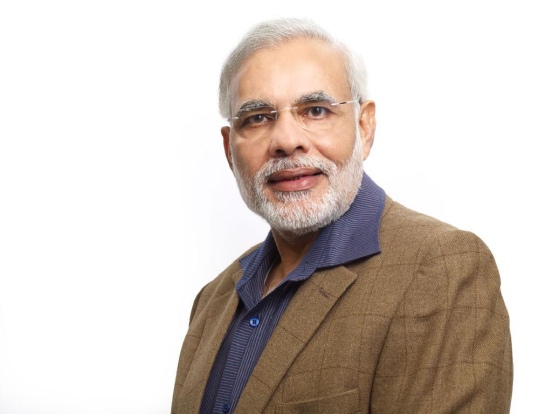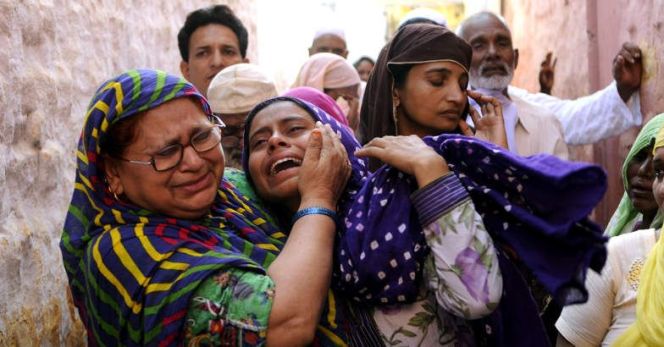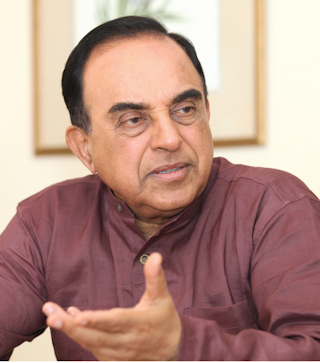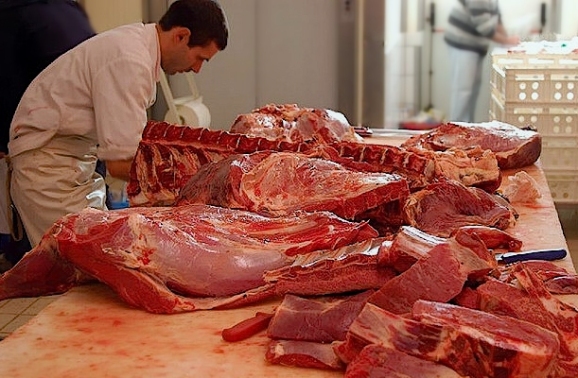
Some of the observations which are being made in relation to Aurangzeb’s character make him appear strikingly similar to Prime Minister Narendra Modi. (Image: Wikipedia)
The decision of the New Delhi Municipal Corporation (NDMC) to rename Aurangzeb Road after former President APJ Abdul Kalam has been met with both jubilation and resistance. Those who consider Aurangzeb a Hindu-hating Mughal emperor are rejoicing at the fact that a road located in the heart of India’s capital city will no longer bear the name of a man who desecrated several Hindu temples. On the other hand, there are people who view Aurangzeb as a misunderstood Muslim king from medieval India who extended grants to Hindu temples and whose legacy is being wrongfully eroded due to myths propounded by the Hindutva brigade.
There is another opinion which is of the iconoclast or the maverick. He is none other than former Supreme Court Judge Markandey Katju who has reserved his judgement on Aurangzeb. While Katju recognises the fact that “there is evidence to show that in Aurangzeb’s time grants were given to several Hindu temples, for example, Mahakal temple at Ujjain, the Chitrakoot temple, etc,” he also does not shy away from mentioning that Aurangzeb “demolished several Hindu temples, for example, the original Kashi Vishwanath temple” and that he “antagonised Rajputs, Marathas, Sikhs, etc.” Therefore, Katju suggests the need for “more objective research” in order to find out whether Aurangzeb was communal or not.
However, some of the observations which are being made in relation to Aurangzeb’s character make him appear strikingly similar to Prime Minister Narendra Modi. The emphasis is being laid on Aurangzeb’s austere way of living and the fact that he used to make caps to earn bread. Prime minister Modi too comes from a humble background as he claims to have helped his father in selling tea at a railway station in Gujarat. After being anointed as prime minister designate, Modi donated Rs 21 lakh out of his personal savings “to educate daughters of drivers and peons” working with the Gujarat government. Following the Nepal earthquake, Modi donated a month’s salary towards the Prime Minister’s National Relief Fund to help those affected by the tragedy.
This makes both Aurangzeb and Modi similar as far as their approach towards the state treasury is concerned. Aurangzeb could have easily survived on the state’s wealth but he chose not to and Modi decided to give away his savings as chief minister of Gujarat for the purpose of education. This reveals the tender nature of the two men but the similarities don’t end here. Tenderness was limited to austerity and it was replaced by ruthlessness when it came to political succession.
To ascend the Mughal throne, Aurangzeb executed his own brothers and had his father Shah Jahan more or less imprisoned within the Agra Fort. On the other hand, Modi brought to an end the political career of his mentors LK Advani and Keshubhai Patel to become prime minister and chief minister, respectively. Both threw tantrums and resisted Modi’s rise but were eventually overcome. Advani was forced to withdraw his resignation after the appointment of Modi as BJP’s campaign committee chief for 2014 Lok Sabha elections and pushed into the Margdarshak Mandal following Modi’s magical election campaign promising “ache din.” Keshubhai Patel was first dethroned as Gujarat’s chief minister by Modi in 2001. In 2012, Keshubhai launched Gujarat Parivartan Party and challenged Modi’s might in Gujarat but the verdict of the ballot box turned out to be a disappointment and Keshubhai tasted sweets from the hands of Narendra Modi at the end of a bitter political battle. Advani and Keshubhai have been reduced to political non entities and Modi lords over the entire country without any opposition from within the BJP just as Aurangzeb did after eliminating his many brothers including Dara Shikoh.
The biggest similarity between Aurangzeb and Modi comes to light when one compares their track record in terms of their policy towards religious monuments. As was argued by Katju, Aurangzeb extended grants to Hindu temples as also destroyed several of them. This clearly indicates that he was a political opportunist. Add to that the fact that he executed Sikh Guru Tegh Bahadur and Sufi saint Sarmad Kashani allegedly on account of opposing forced conversions and blasphemy, respectively. IIT Mumbai’s Professor Ram Puniyani, a renowned communal amity activist, has mentioned that “Aurangzeb did not hesitate to destroy the Jama Masjid in Golconda as Nawab Tanashah refused to pay him tribute for three consecutive years and hid his wealth underneath a mosque, which was damaged by Aurangzeb to recover his dues.” Such actions hint that Aurangzeb wasn’t a principled person but was rather a political opportunist who could construct temples, destroy temples, construct mosques and destroy mosques to further his political ambitions.
Ironically, Modi’s approach isn’t very different. In 2002, shortly after the infamous Gujarat riots, Modi took out a Gujarat Gaurav Yatra. On September 9, 2002, Modi arrived in Bahucharaji and proudly thumped his chest while mentioning that his government had allotted Rs 8 crore for the development of Bahucharaji Devi Temple. Six years later in 2008, Modi was likened to Mahmud of Ghazni by the Vishwa Hindu Parishad for having initiated a drive to destroy illegal temples in Gujarat. Modi hurriedly met VHP Chief Ashok Singhal and “ordered a ban on temple demolition in the state with immediate effect.” Five years later in 2013 came the Uttarakhand flash floods. Modi travelled to Uttarakhand and urged the then Chief Minister Vijay Bahuguna to outsource the task of reconstructing the Kedarnarth Temple to the Gujarat government.
Such was Modi’s love for temples. He would allocate millions of rupees for their development, prevent the demolition of illegal temples and even request a state government to allow the Gujarat government to rebuild an ancient temple in their state which was clearly outside of its jurisdiction. But does Modi really love temples? Or he loves temple politics? The Islamic Relief Committee of Gujarat filed a PIL (Public Interest Litigation) asking the Gujarat government to pay compensation to the over 500 religious monuments destroyed during 2002 Gujarat riots. The religious monuments included both Hindu and Muslim places of worship. But an overwhelming majority of those belonged to the Muslim community. Modi’s government opposed the PIL in court arguing that the state government cannot pay any such compensation as it goes against Article 27 of the Indian Constitution which gives citizens the freedom from payment of religious taxes. Thankfully, such bogus arguments were neither accepted by the Gujarat High Court or the Supreme Court and they ordered proper compensation.
But the question which Modi needs to answer is the following: Wasn’t Article 27 coming in the way when he was allocating Rs 8 crore for the development of Bahucharaji Devi Temple? Wasn’t Article 27 a constitutional roadblock when he offered to reconstruct the Kedarnath Temple? If Modi’s government really cared for temples then they would have paid for the compensation of those temples which were destroyed during the 2002 Gujarat riots. But they didn’t because Modi’s government did not intend to provide compensation which was to benefit a few temples as opposed to several mosques and shrines. It would have sent out a wrong signal that Modi is trying to reach out to the Muslim community which is such an anathema to his image of Hindu Hriday Samrat. So his government decided to oppose compensation for religious monuments destroyed during the Gujarat riots.
Interestingly, Modi becomes prime minister in 2014. He makes it a habit to visit a temple whenever on a foreign diplomatic trip. He proclaims “India First” as his definition of secularism and on his trip to Abu Dhabi in United Arab Emirates, Modi gets land allocated for the construction of the first Hindu temple in Abu Dhabi while simultaneously paying a visit to Sheikh Zayed Grand Mosque thereby making both Hindus and Muslims happy. Does that make Modi secular? Absolutely not!
How can we forget that this is the same person who pitched temples against mosques? Modi allocated money for development of Bahucharaji Devi Temple, offered reconstruction of Kedarnath Temple, prevented demolition of illegal temples fearing backlash from Vishwa Hindu Parishad but refused to provide compensation for religious monuments destroyed during 2002 Gujarat riots simply because 241 of those were mosques and 273 Muslim shrines. He did not have a problem in donning a Sikh turban or traditional North Eastern headgear but refused to wear a Muslim skull cap during his Sadhbhavna mission and did not even extend greetings to the nation on the occasion of Eid during his first year as prime minister.
Today, Modi might be visiting Central Asian nations and invoking the teachings of Islam. He might have visited a mosque in Abu Dhabi but that doesn’t make him secular. It exposes him as a political opportunist, much like Aurangzeb, who does communal politics in the name of temples and mosques at his own convenience so as to appeal to his increasing base of supporters or votebank. Only an opportunist of the stature of Narendra Modi can be an admirer of both MS Golwalkar and Syedna Mohammed Burhauddin, the former being the communal Sarsangchalak of Rashtriya Swayamsevak Sangh (RSS) who hurled choicest abuses at Muslims and Christians while the latter was the despotic spiritual leader of Dawoodi Bohras who levied religious taxes, violated their human rights and tried to silence moderate voices like those of Asghar Ali Engineer. Such is politics!
http://www.dailyo.in/politics/aurangzeb-road-apj-abdul-kalam-ndmc-hindutva-rss-modi-government/story/1/5986.html
(This article was originally published in DailyO.)




